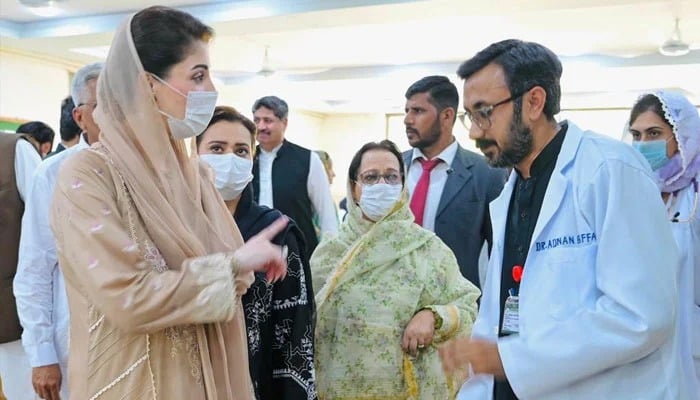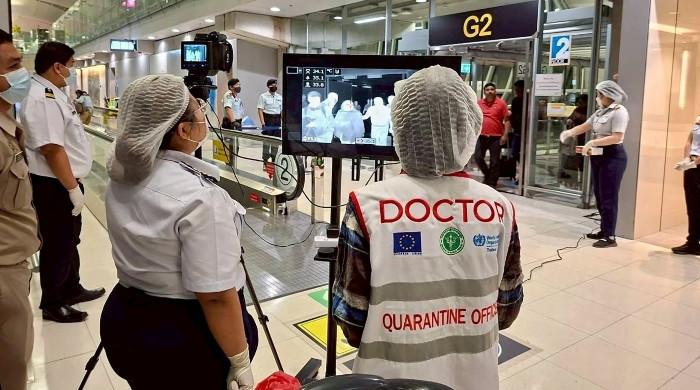Punjab bans mobile phone use by hospital staff, introduces pager system
Notification says decision aims to ensure uninterrupted emergency response, improve quality of patient care
July 08, 2025

- Mobile phone use banned for staff below BPS-18.
- Three-day compliance deadline for monitoring phone use.
- Nurses instructed to follow SOPs strictly.
LAHORE: The Punjab government has imposed a ban on the use of mobile phones by hospital staff below BPS-18 grade during duty hours in all public sector hospitals across the province, instructing the introduction of a pager system for emergency communications.
According to two circulars issued on July 7, 2025, by the Specialised Healthcare and Medical Education Department, the decision aims to ensure uninterrupted emergency response and improve the quality of patient care in public healthcare facilities.
The first circular states that the use of pagers is being made mandatory across all public healthcare institutions to enhance rapid communication during high-risk situations.
“Pagers help to ensure that critical alerts — such as Code Blue and Code Red — are promptly received and responded to,” it reads. All hospitals under the department’s jurisdiction have been instructed to ensure strict compliance.
Meanwhile, the second directive bans the use of mobile phones during duty hours by all hospital staff below 18 grade in emergencies, ICUs, NICUs, and operation theatres.
Exceptions will apply to senior administrative officers such as Medical Superintendents, Additional and Deputy Medical Superintendents, Senior Registrars, and Directors. The directive warns that the frequent and unnecessary use of mobile phones was disrupting patient care and hospital operations.
Medical superintendents and heads of departments have been tasked with enforcing the ban, monitoring staff behaviour, and submitting compliance reports within three days.
In addition, the circulars stress the need to ensure a robust and responsive emergency care system and mandate adherence to SOPs by nursing students, particularly in procedures such as IV injections.
The directives have been circulated to all public sector medical universities, colleges, specialised institutes, and teaching hospitals in Punjab. Copies have also been forwarded to the Chief Minister’s Secretariat, Secretary of Health, and relevant department heads.











